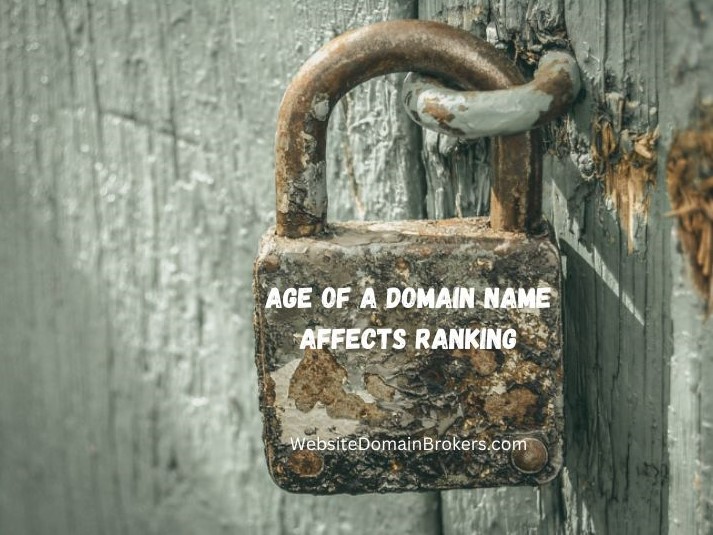How does domain age affect domain authority? Domain age is an important factor in determining domain authority, or a website’s ranking on search engines.
Studies have shown that older domains tend to rank higher than newer domains, as they are more established and have built up a stronger online presence over time.
You obviously cannot increase domain name age but you can take steps to increase authority. This would included regularly updating your website with fresh content, focusing on quality over quantity when it comes to backlinks, and engaging with your audience in order to build a loyal following.
You may want to invest in paid advertising to help increase traffic which in turn may help with ranking and authority.
While domain age is just one factor that impacts website ranking, it is an important one, and should be taken into consideration when building your online presence.
Related: Read How does buying expired domain names help SEO?
What is domain age and why does it matter when it comes to domain authority?
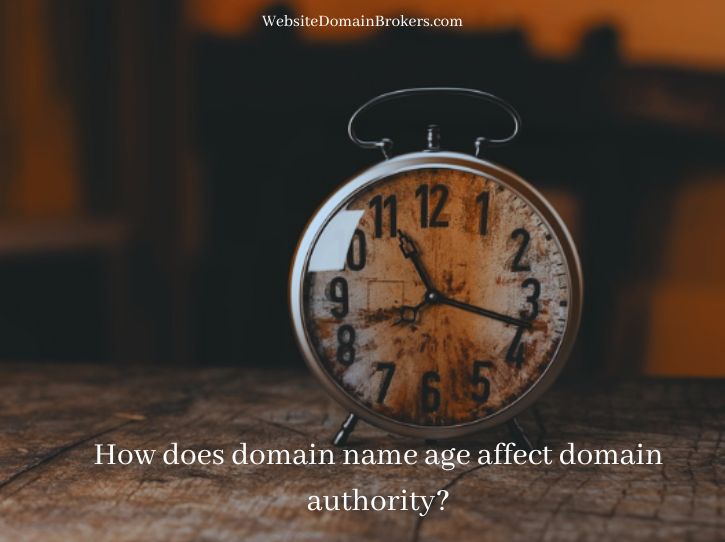
Domain age refers to the length of time that a domain has been active online, and is an important factor when it comes to domain authority.
Generally speaking, older domains tend to rank higher in search engines than newer domains, as they have had more time to establish themselves and build up their online presence. This can be attributed to a variety of factors, such as domain age, domain authority, and website ranking.
Domain age is just one component of domain authority, which refers to a domain’s overall strength and ability to rank well in search engines.
Domain authority is determined by a number of factors, including the quality and quantity of backlinks to a domain, the frequency with which content is updated on a domain, and the number of other websites that link to that domain.
Building domain name authority
If you are looking to build up your domain authority, there are a number of things that you can do to help improve your domain’s standing in search engines.
Some key strategies include publishing high-quality content regularly, building high-quality backlinks from authoritative websites, and engaging with your audience on social media.
By focusing on these factors, you can help increase domain authority and improve the visibility of your website online.
Steps to take,
- Have a premium domain name that people will trust.
- Good content such as a blog that goes after specific keywords in your niche or industry.
- Bad content will make people exit your page fast which in turn shows google your information isn’t relevant and could lower your ranking.
- Getting good backlinks from websites that are high ranking.
- Checking your website for broken links.
- internal linking.
- Following best SEO practices with your website.
Related: Read 6 Tips for Choosing a Domain Name
How can you improve domain age and domain authority, and what are some of the key factors to consider?
To improve domain age and domain authority, it is important to focus on a number of key factors.
These may include publishing high-quality content regularly, building high-quality backlinks from authoritative websites, and engaging with your audience on social media.
Domain age can be impacted by factors such as website performance, domain reputation, domain relevance, and domain registration history.
When it comes to domain authority, there is no one-size-fits-all approach, as this will depend on a variety of factors such as your website’s niche and target audience.
However, by focusing on these key considerations, you can help improve domain age and domain authority, which can lead to better visibility and higher rankings in search engines.
What are some common misconceptions about domain age and domain authority, and how can you avoid falling into these traps?
There are a number of common misconceptions around domain age and domain authority.
Many people believe, for example, that domain age alone is enough to guarantee high rankings in search engines.
However, domain age is just one factor among many that contribute to domain authority, and there are other important considerations, such as website performance, domain reputation, domain relevance, and domain registration history.
In addition, there are a number of common pitfalls that people can fall into when it comes to domain age and domain authority.
Some of these include focusing too narrowly on domain age alone, targeting the wrong audience, or not building quality backlinks from authoritative websites.
Note: Bad backlinks are worse than no backlinks. Backlinks from untrusted or scammer websites (Example paying for backlinks from fivver) will hurt your ranking and authority.
To avoid falling into these traps, it is important to develop a comprehensive domain authority strategy that takes into account all of the key factors.
This may involve working with an experienced SEO consultant, who can provide guidance and support as you take steps to improve domain age and domain authority for your website.
With the right approach and tools, it is possible to achieve better rankings in search engines and drive more traffic to your website.
Related: Read 7 Tips for Preventing Domain Name Hijacking in 2022.
How can you effectively measure domain age and domain authority, and what tools or strategies might you use to do so?
Measuring domain age and domain authority can be a challenge, as these metrics are often influenced by a wide range of factors.
Some of the key considerations when measuring domain age include website performance, domain reputation, domain relevance, domain registration history, and the number and quality of backlinks to a domain.
One common approach is to use domain authority plugins or tools, such as Moz and Ahrefs .
Moz:
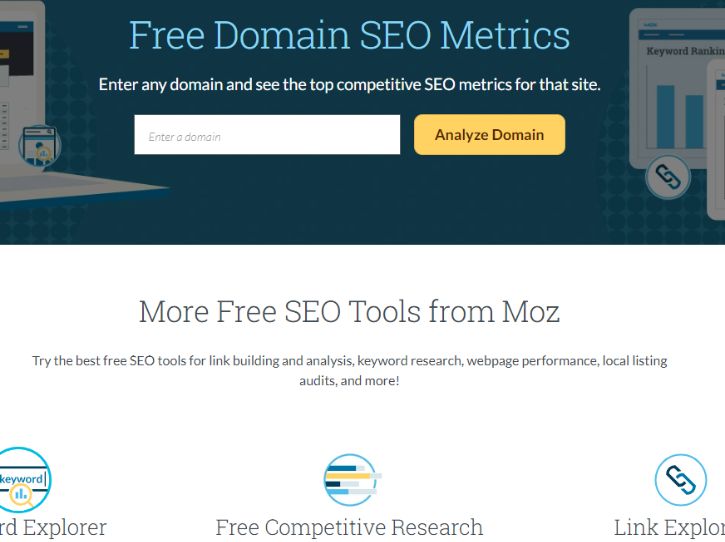
Moz domain authority plugin: free on chrome.
Ahrefs:
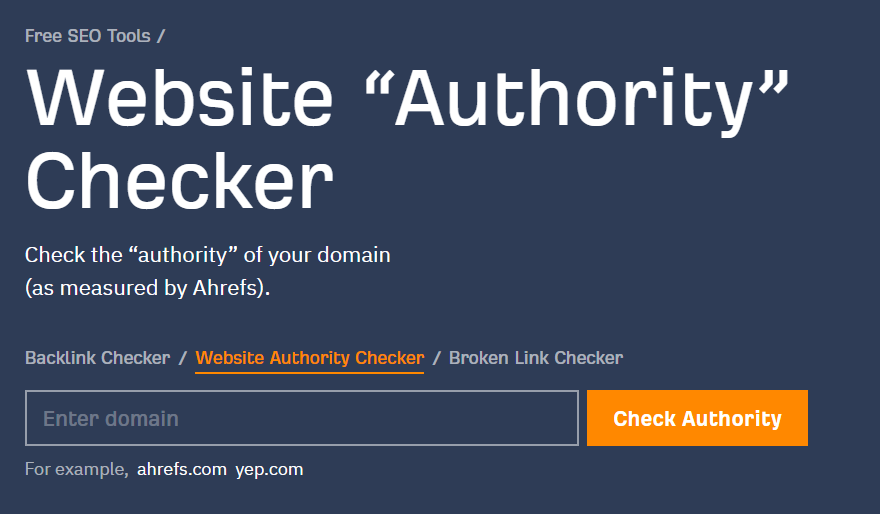
Ahrefs free domain authority checker.
These can help domain authority based on a number of different factors, including domain authority, domain relevance, domain reputation, domain backlinks, and others.
Other potential strategies include using SEO software to analyze your website’s domain authority over time.
Or, working with an experienced SEO consultant who can provide expert guidance on domain age and domain authority.
Ultimately, the key to effective domain age and domain authority measurement is to have a clear understanding of your website’s goals and target audience, as well as the factors that influence domain authority.
With this knowledge, you can develop an effective strategy for increasing domain age and domain authority over time, which can help improve your website’s visibility and drive more traffic to your site.
What are some best practices for building a strong domain that will help boost domain authority over time?
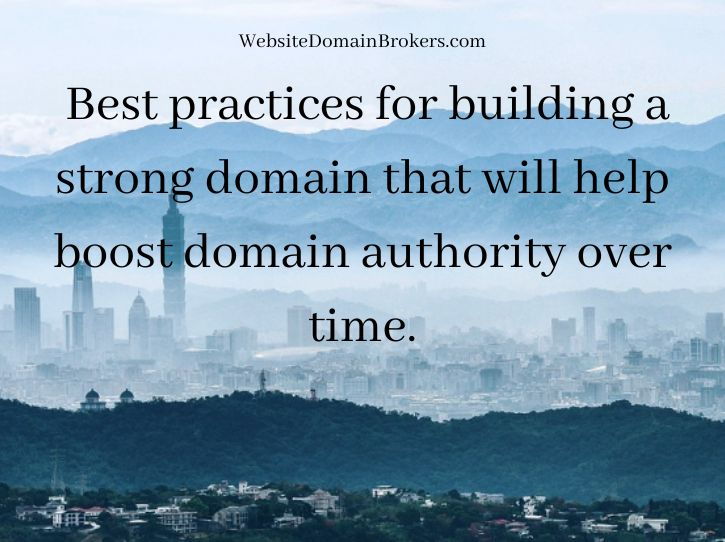
Domain authority is an important factor when it comes to ranking your website on search engines. To build a strong domain and boost your authority, there are several best practices you can follow.
One of the most important things to focus on is having a premium domain name. This helps give your site credibility in the eyes of visitors and search engines, which can help it rank higher in search results.
Another key element is building strong backlinks with other websites. This helps increase your domain’s visibility and credibility, as well as boost your authority over time.
Finally, blogging is a highly effective way to build your domain’s authority.
By consistently creating and sharing valuable content on your site, you can improve your rankings and gain a reputation as an expert in your field.
With these strategies, you can build a strong and successful domain that will help boost your authority over time.
SEO and Domain Authority.
You cannot build domain authority over night, but you can set yourself up for success in the long run.
Building your website with best SEO practices in mind will significantly set you ahead of an older domain that does not do this.
Consider using google search console to assist you in getting insights on your website performance.
Probably one of the best SEO tools on the market is SemRush, which can tell you about,
- Your website performance
- How you are ranking against your competitors
- Keyword gap between you and the top ranking website in your niche.
- How to optimize your content for readability and SEO
- And so much more
Related: Read What’s So Great About Google Domains?
Summary
Despite the importance of domain age and domain authority, there are several other factors that also play a role in determining a website’s ranking on search engines.
Some of these factors include backlinks, user engagement, and paid advertising.
It is therefore important to carefully consider all aspects of your online presence when working to improve rank and visibility.
Whether you are a new or established website, there are always steps you can take to improve your domain age and domain authority, and ultimately boost your search rankings.
By focusing on quality over quantity when it comes to backlinks, updating your website with fresh content regularly, and engaging with your audience, you can help ensure that your online presence is consistently growing and reaching new heights.
Key Points.
- Domain name age does effect domain authority.
- Older domain names are more likely to have trust with search engines and people.
- There is also a possibility they are already ranking.
- Domain name ranking is not based on age alone.
Related: Read Everything you need to know about Domain Name Acquisition, Brand Hijacking, and Expired Domains.
